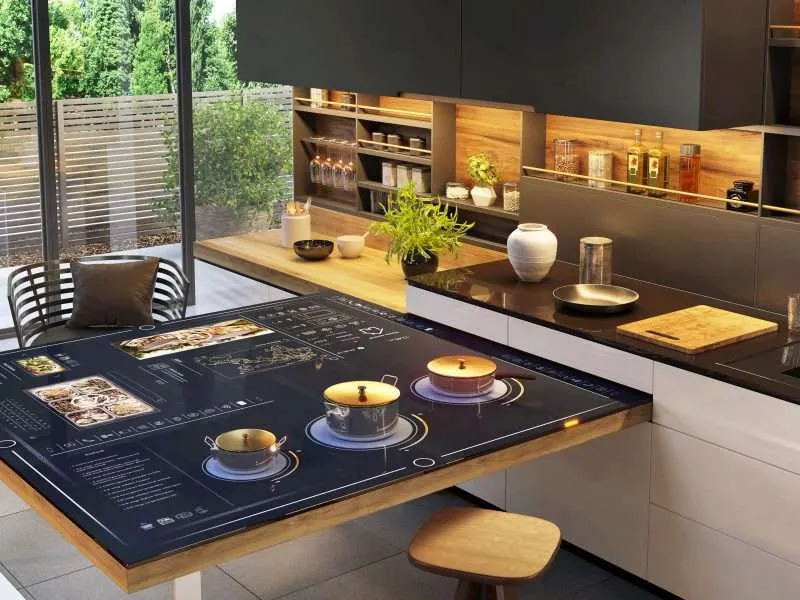
Mclub World – The rise of smart kitchens signals a shift in how we cook, eat, and connect with food. Smart kitchens are cooking up the future — one byte at a time is no longer just a catchy phrase but a real transformation happening in homes worldwide. With AI-driven ovens, voice-activated recipes, and fridges that monitor groceries, the kitchen is no longer a passive room. It’s becoming a responsive space that learns habits, suggests meals, and even orders ingredients. Tech companies and appliance brands are racing to build the most intelligent, intuitive cooking systems.
Today’s smart kitchens allow hands-free commands to control everything from timers to stove temperatures. Virtual assistants can suggest dishes based on what’s in your fridge. Some ovens now recognize the type of food placed inside and adjust heat levels automatically. Cooking becomes faster because there’s less guesswork involved. AI can warn users if food might burn or needs stirring. This predictive design helps reduce waste, save energy, and produce consistent results. The user only needs to prepare the ingredients; the system handles the rest.
“Read More: 10 Most Popular Halloween Candies in the World, Did Your Favorite Make the List?”
Smart refrigerators are doing more than keeping food cold. They’re equipped with internal cameras and barcode scanners to track items stored inside. If milk is about to expire, the fridge can send a reminder. It also suggests recipes to use up leftover ingredients. Some models even sync with shopping apps, updating your grocery list in real time. This tech reduces food waste and ensures nothing gets forgotten at the back of a shelf. Families save money and become more conscious of what they consume daily.
Smart kitchens are linking with wearable tech to offer customized meal plans. If your fitness tracker notes a high calorie burn, your kitchen can recommend meals with higher protein. Apps analyze user preferences, allergies, and goals to generate weekly menus. This integration allows for healthier eating habits without needing a personal chef. Meal prep becomes less stressful, as the system calculates portions and nutrient content automatically. Families with children or elders benefit most, ensuring everyone gets the right nutrients each day.
“Read About: The World on Your Plate: Why Culinary Tourism Is Rising”
Smart appliances are built to optimize energy use. Induction cooktops adjust heat based on pan size and material. Dishwashers run during off-peak hours to save on electricity. Users receive energy usage reports via mobile apps. These features reduce the household’s carbon footprint while maintaining kitchen functionality. Sustainable cooking no longer means inconvenience. Instead, it’s built into the design, ensuring that every meal has a lower environmental cost. The kitchen of tomorrow is as green as it is smart.
Unlike traditional setups, smart kitchens evolve with time. They learn cooking routines and make suggestions based on past behavior. A user who prefers spicy food will start seeing more chili-based recipes. Machine learning models adjust meal timing if you usually eat late. The more you interact with the system, the more personal it becomes. This adaptive design keeps cooking fresh and exciting. Future kitchens will feel like culinary partners, anticipating needs before you say a word.
This website uses cookies.